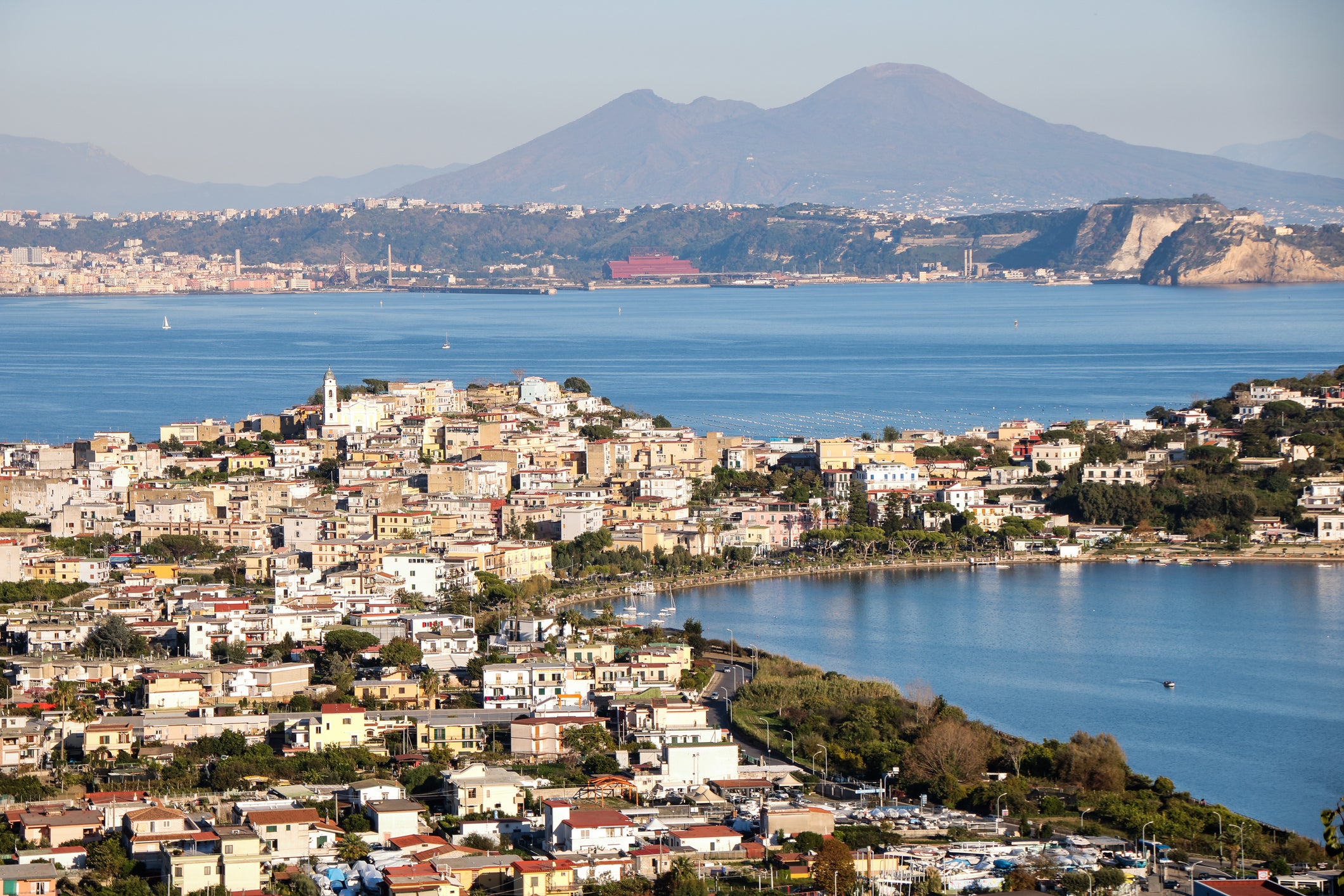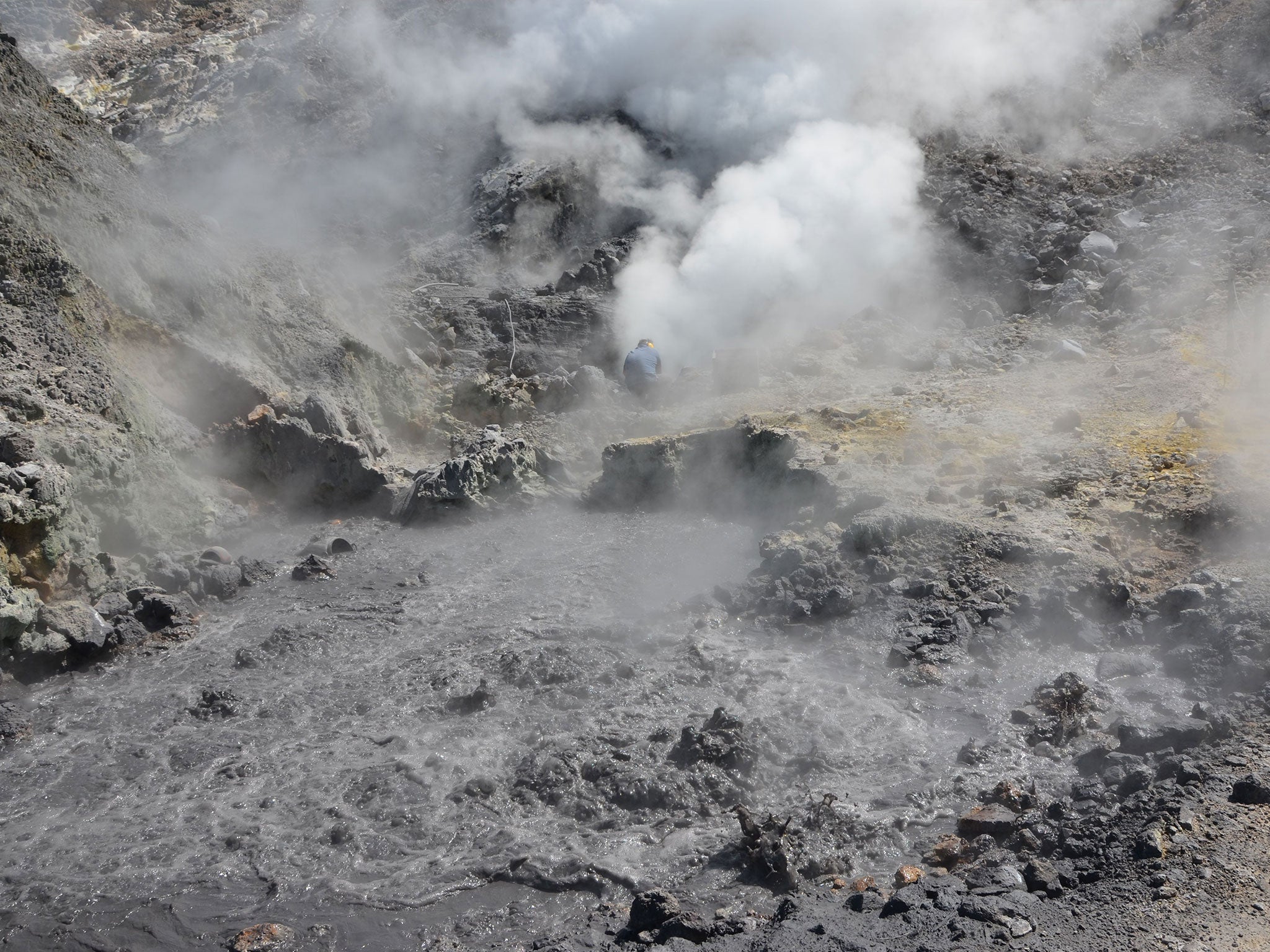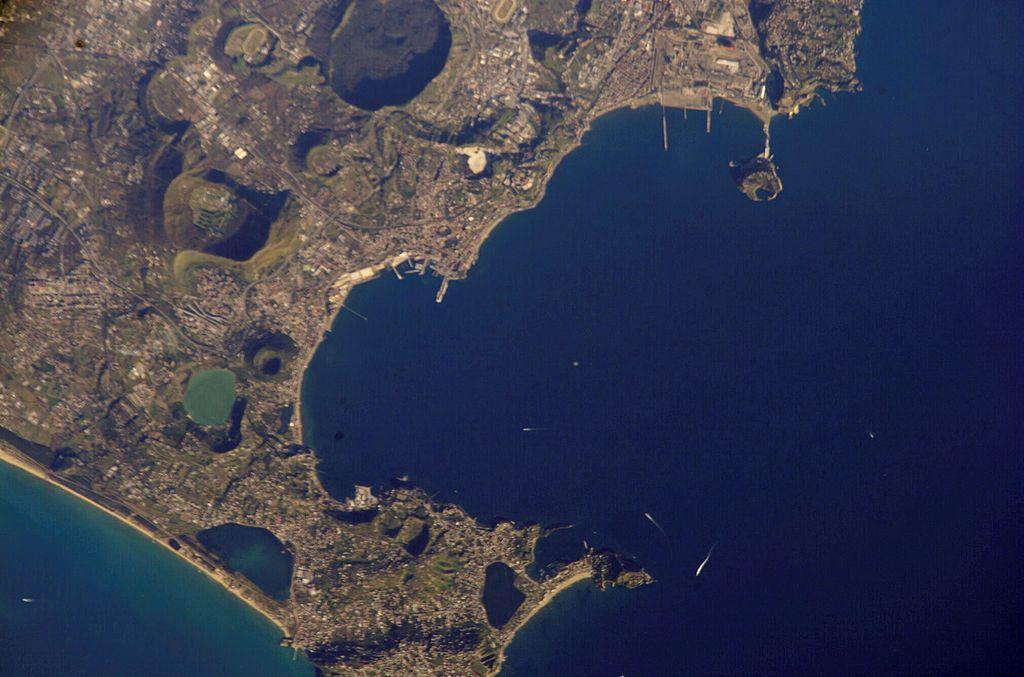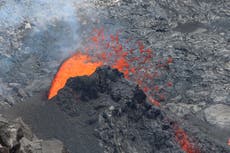Supervolcano which contributed to wiping out the Neanderthals has ‘realistic possibility’ of erupting
Campi Flegrei has been ‘restless‘ since 1950

The Italian volcano that could have killed off the Neanderthals has a “realistic possibility” of erupting again, scientists have warned.
Campi Flegrei, which last blew nearly 500 years ago, has been “restless” since about 1950, with thousands of earthquakes recorded in that period, new research published in the Communications Earth & Environment journal has revealed.
Now, its crust is becoming weaker and “moving closer to rupture”, warned the study by UCL and Italy’s National Research Institute for Geophysics and Volcanology this month.

Not only has this sparked fears of a global winter - killing wildlife and crops in its wake - but also concerns for the at least half a million people who live on the volcanic field, which is known as the 'Phlegraean' fields in Greek or 'burning' fields in English.
Around 39,000 years ago, Campi Flegrei had a huge eruption, and the winter that followed is thought by some to have contributed to the extinction of the Neanderthals - however, this theory is disputed by others.
Located in the south of the country, near Naples, Campi Flegrei is a sprawling region of supervolcanic calderas, which are large depressions that form when a volcano erupts and collapses.
The last time it blew in 1538, molten rock and volcanic gases were launched high into the air. If this happened again now, sulfur and toxic ash would spread around the world, possibly forcing a long global winter and killing wildlife and crops.

The site has been inactive for almost half a century, but over 600 earthquakes were recorded in the area in April alone, indicating the rising numbers in the area, which has led to the experts’ warning.
Local man Francesco Cammarota told the Guardian: “Some days there are more than one. It’s frightening, especially at night. One day it will just go off.”
An evacuation plan has been prepared, which would move the half a million residents in the vicinity away within three days. Many currently reside in Pozzuoli, which is on a yellow-level risk alert, the second of four colour-coded levels (green, yellow, orange and red).
Mauro Antonio Di Vito, director of the INGV’s nearby Vesuvius Observatory, has warned there could be difficulty evacuating people due to the dense population combined with the narrow streets.
He added: "These areas have been urbanised without considering the fragility. Buildings need to be better structured and we need a cultural change to really encourage people to do this."
But experts are cautiously optimistic, offering reassurances an eruption is not inevitable, as gases must build up quicker than they can escape and magma must move rapidly through a crack in the crust for that to happen.
The study’s lead author Christopher Kilburn, a professor of Earth Science at University College London, said: “Our new study confirms that Campi Flegrei is moving closer to rupture. However, this does not mean an eruption is guaranteed. The rupture may open a crack through the crust, but the magma still needs to be pushing up at the right location for an eruption to occur.”
The Observatory's researcher, Stefano Carlino, explained: "It's the same for all volcanoes that have been quiet for generations. Campi Flegrei may settle into a new routine of gently rising and subsiding, as seen at similar volcanoes around the world, or simply return to rest.
"We can't yet say for sure what will happen. The important point is to be prepared for all outcomes."
Join our commenting forum
Join thought-provoking conversations, follow other Independent readers and see their replies
Comments


Bookmark popover
Removed from bookmarks